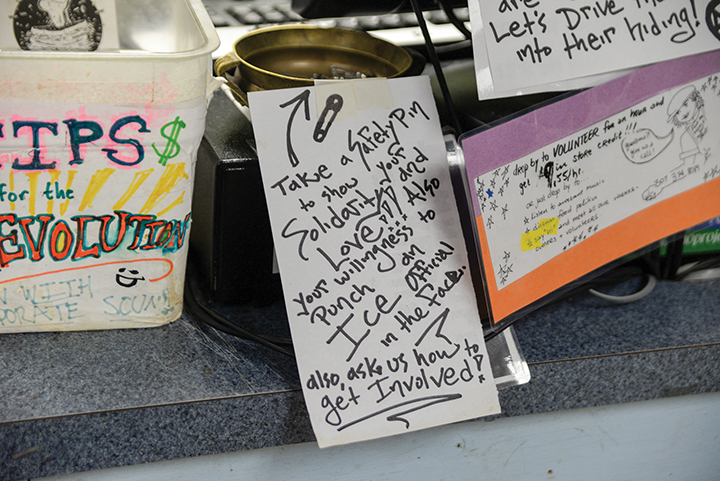By Liam Harrington
For The Diamondback
The Maryland Food Collective began handing out safety pins to customers this week as a sign of solidarity with people who may feel marginalized after Donald Trump was elected president.
Trump’s campaign was marked by controversial comments, including that Mexicans are rapists and Muslims should be banned from entering the United States. He was also accused of sexually assaulting more than 10 women, and a leaked tape exposed him describing women in lewd terms.
After last Tuesday’s upset, many have worried that members of his base will harass minorities, women, immigrants and LGBTQ people. There have been hate and bias incidents reported across the country — and in Maryland, where a Silver Spring church was vandalized with the words, “Trump Nation. Whites Only.”
“A huge part of the Co-op is advocating for those who are marginalized,” said junior English major Kara Phillips, who works at the Co-op. She added that Trump is not going to advocate for peoples’ rights, so “we have to do it for ourselves.”
The idea of using a safety pin as a symbol of solidarity emerged after the Brexit referendum.
When Britain voted to leave the European Union, the number of xenophobic incidents went up by 57 percent, according to the New York Times. Wearing a safety pin allowed British people to show their support for people being targeted.
“It’s just a day-to-day symbol for people who feel marginalized to see that they have a friend or ally in their vicinity and feel a little more safe in this really hostile environment,” said sophomore government and politics major Michael Brennan, the president of the this university’s Our Revolution chapter.
Rabbi Aderet Drucker was one of the people who picked up a safety pin.
“My understanding is it represents unity and safety during this uncertain time for some people, because of the divisiveness that’s been displayed, post-election results,” said Drucker, Maryland Hillel’s director of Jewish Life and Learning. She said she plans to do more research before committing to wearing the pin.
American University graduate Chris Litchfield, who works at the Co-op, said just wearing a pin isn’t enough. While he handed them out, he told customers about upcoming community events. Twice since Trump’s election, hundreds of University of Maryland students have rallied on McKeldin Mall.
“You can’t just wear this pin and say that you’re good,” Litchfield said. “If you’re going to wear this pin, this is like signing up to do something next.”



